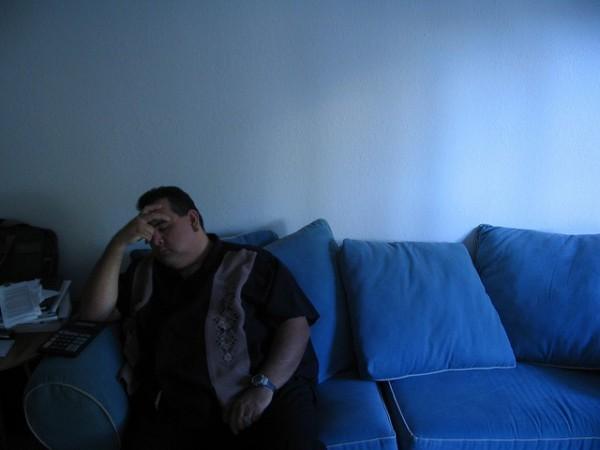
People who suffer from chronic migraine know how unbearable it is. As per the estimates of World Health Organization (WHO), between 127 and 300 million people around the world are victims of chronic migraine.
There's no cure for migraine — people take painkillers and drugs to reduce the pain. But, these pills have side-effects. Therefore, scientists have come up with a device that might help in reducing the symptoms of migraine. The device is an armband that emits mild electric pulses, and it's strapped to the upper arm during the first few minutes of an attack.
When used, it has the capability to halve the symptoms, according to a new study.
The electric pulses emitted by the armband stimulate nerves under the skin and block pain signals from reaching the brain.
This new gadget is known as Nerivio Migra 1, which has a credit card-size patch containing electrodes, a battery and a computer chip, attached to a strap that goes around the arm.
When the migraine attack occurs, the user can activate the device with the help of an application on the phone. The strength of the electric stimulation can also be regulated.
Researchers at Technion-Israel Institute of Technology in Haifa led the trial of the device which involved 70 participants.
The recruited people were those who suffered two to eight migraine attacks per month but had not used preventive medications to treat the attacks for at least two months.
During the 10-month study, the participants were instructed to use the device for 20 minutes as soon as they get a migraine attack.
The users were also asked to avoid any medications for 2 hours after the onset of a headache. But, 27 participants received a placebo, or sham treatment, meaning the device delivered electrical stimulation at a frequency level too low to ease the pain.
After the trial, it was found that people who used the device for 20 minutes, had 64 percent reduction in pain after two hours, compared with 26 percent of people using a placebo device that didn't emit any signals, Daily Mail reported.
Peter Goadsby, a professor of neurology at King's College London, said: "These early results are promising. Given patients are looking for better-tolerated treatments, larger studies are needed to understand whether this treatment will be effective."









!['Had denied Housefull franchise as they wanted me to wear a bikini': Tia Bajpai on turning down bold scripts [Exclusive]](https://data1.ibtimes.co.in/en/full/806605/had-denied-housefull-franchise-they-wanted-me-wear-bikini-tia-bajpai-turning-down-bold.png?w=220&h=138)



